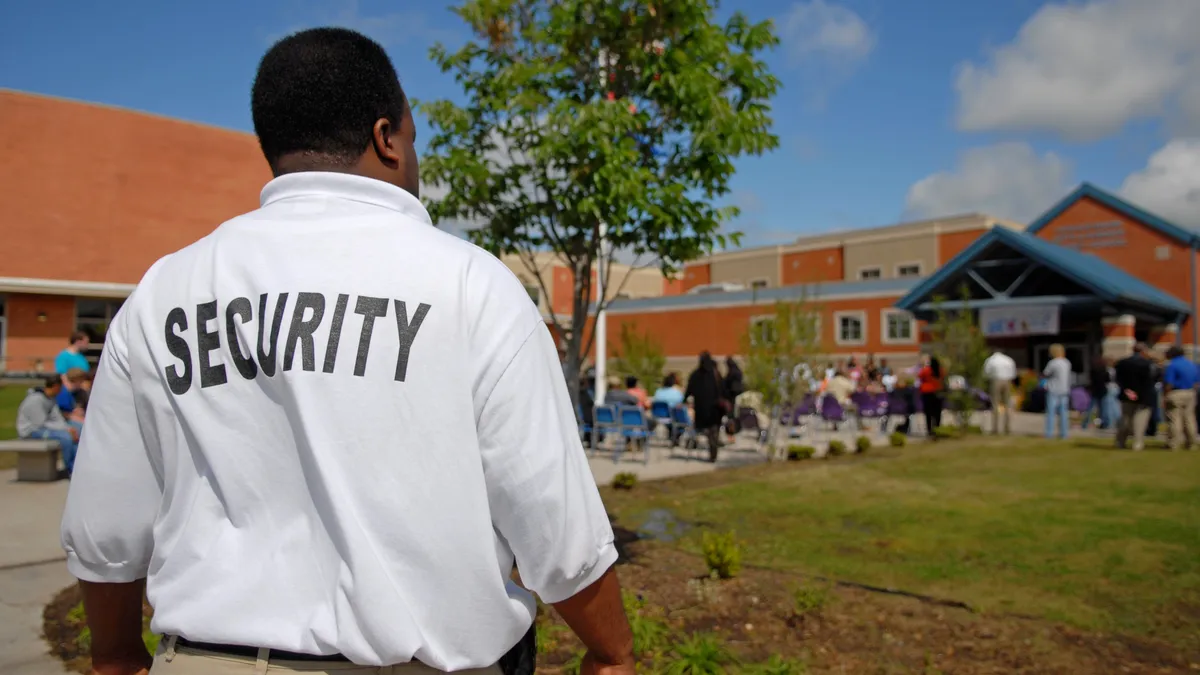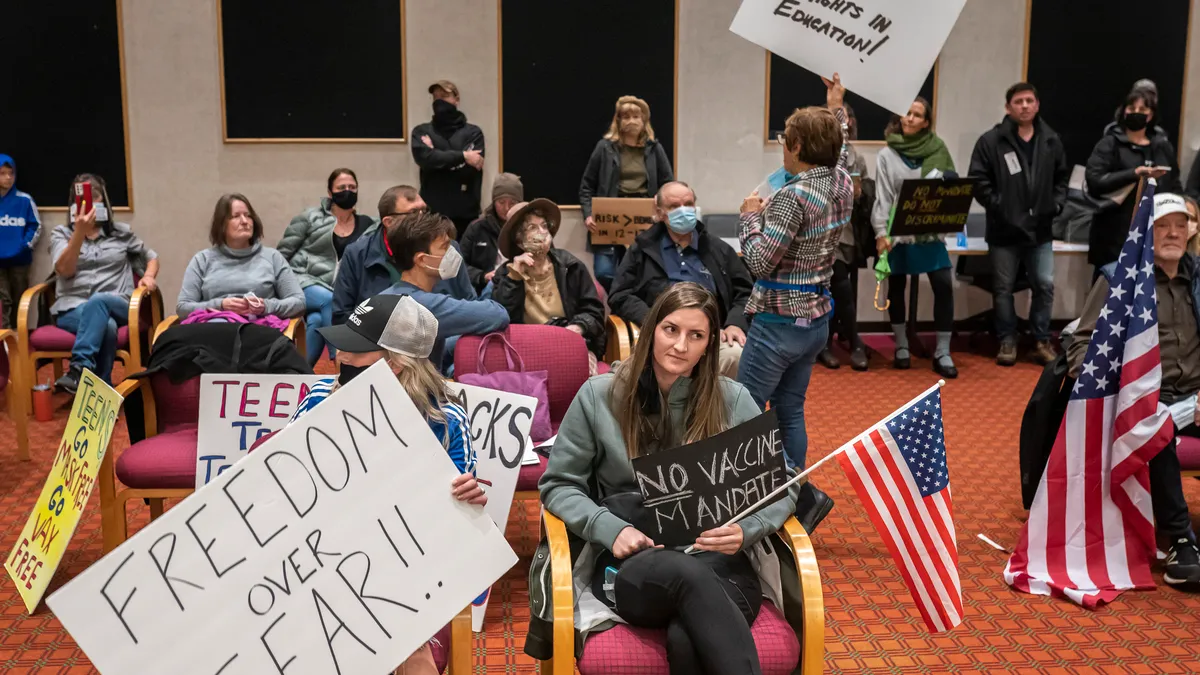Dive Brief:
- A federal judge ruled Broward County Public Schools and the Broward sheriff's office did not have a legal duty to protect students at Marjory Stoneman Douglas High School during a shooting massacre in February, The South Florida Sun Sentinel reports.
- U.S. District Judge Beth Bloom dismissed the lawsuit, which was filed by 15 students at the Parkland high school who say the school and the police were legally obligated to protect them during the shooting that killed 17. Ultimately, Bloom wrote in the ruling that "for such a duty to exist on the part of defendants, plaintiffs would have to be considered to be in custody," the Sun Sentinel reported.
- The ruling takes a different turn from previous rulings in related cases: Last week, Broward Circuit Judge Patti Englander Henning rejected an argument from defendant Scot Peterson — an armed deputy stationed at the high school the day of the shooting — claiming he had no duty to confront the gunman, ruling that Peterson did have a legal duty to the school community as well as an "obligation to act reasonably" in the situation.
Dive Insight:
A growing number of complaints alleging schools' failure to protect students has begged the question: To what degree are schools and school employees liable for shielding the student body, and where is that bar set?
Protecting students is a wide net to cast, and it includes an array of issues a student could run into over the course of the school day. It could involve a student getting bullied and harassed by their peers, which injures their mental and/or emotional health and disrupts their ability to learn. It could mean a student slips off the monkey bars and breaks their arm in the fall. Or, in what's likely the most extreme setting, it could mean a gunman rampages through the school and shoots someone.
In many cases, for a person or entity to be held liable for someone's injuries, the injured person has to prove that the accused had a legal responsibility to protect them from getting hurt. Land and property owners are typically expected to exercise a reasonable amount of care in ensuring that those who are legally allowed to be there are kept safe, and that policy extends to schools.
Ultimately, Bloom ruled that the plaintiffs, or students, "would have to be considered to be in custody" — like a patient in a facility, for example — for them to be liable, The Sun-Sentinel reported. But this ruling is certainly not one that happens 100% of the time, and it does not signal that there aren't still things to improve.
A draft report from a commission tasked with investigating the shooting was made public last week, highlighting what that panel thought went wrong in the school and among law enforcement officials. The report cites unlocked gates, security issues, a lack of surveillance coverage, no hallway PA speakers, confusion among law enforcement, and a failure by the deputy to "act consistent with his training" when he "fled to a position of personal safety."
While schools and school employees are given certain protections from legal action, no one is completely in the clear, and the specifics of a situation help determine who is (or isn't) at fault. Many of these questions don't have a single answer, but administrators, school resource officers and educators can look to online resources, as well as attorneys, as valuable resources in gaining more insight.






 Dive Awards
Dive Awards






